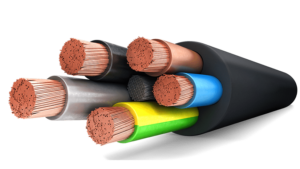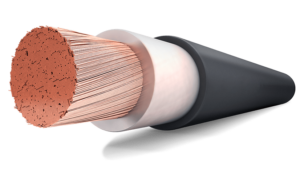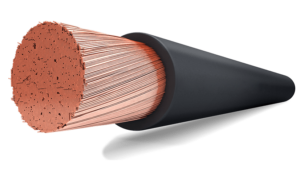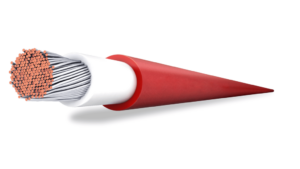Rubber Cables
What are Rubber Cables?
Rubber cables are electrical cables coated with a layer of rubber or elastomer. This covering provides them with flexibility, durability, and resistance to adverse environmental conditions such as high temperatures, chemicals, and abrasions.
Characteristics of Rubber Cables:
Flexibility: The rubber layer allows for high flexibility, facilitating installation and handling in tight spaces.
Temperature Resistance: Designed to withstand a wide range of temperatures, ideal for extreme environments in both high and low temperatures.
Chemical Resistance: The rubber covering protects against exposure to aggressive chemicals, preventing damage to the cable.
Abrasion Resistance: They offer protection against abrasion caused by rubbing or contact with rough surfaces.
Impact Protection: Rubber absorbs impacts and protects internal conductors from mechanical damage.
Applications of Rubber Cables:
Due to their special characteristics, these cables are widely used in various applications, including:
- Heavy Industry: In demanding industrial environments such as chemical plants, refineries, and the oil and gas industry.
- Construction and Public Works: At construction sites and public works due to their resistance to harsh conditions and protection against damage.
- Events and Shows: Common in entertainment to power lighting and sound equipment at concerts, theaters, and live events.
- Mobile Equipment: In mobile machinery such as cranes, forklifts, and mining equipment due to their flexibility and resistance to shocks and vibrations.
- Marine Applications: In vessels and marine environments for their resistance to moisture and salinity.







